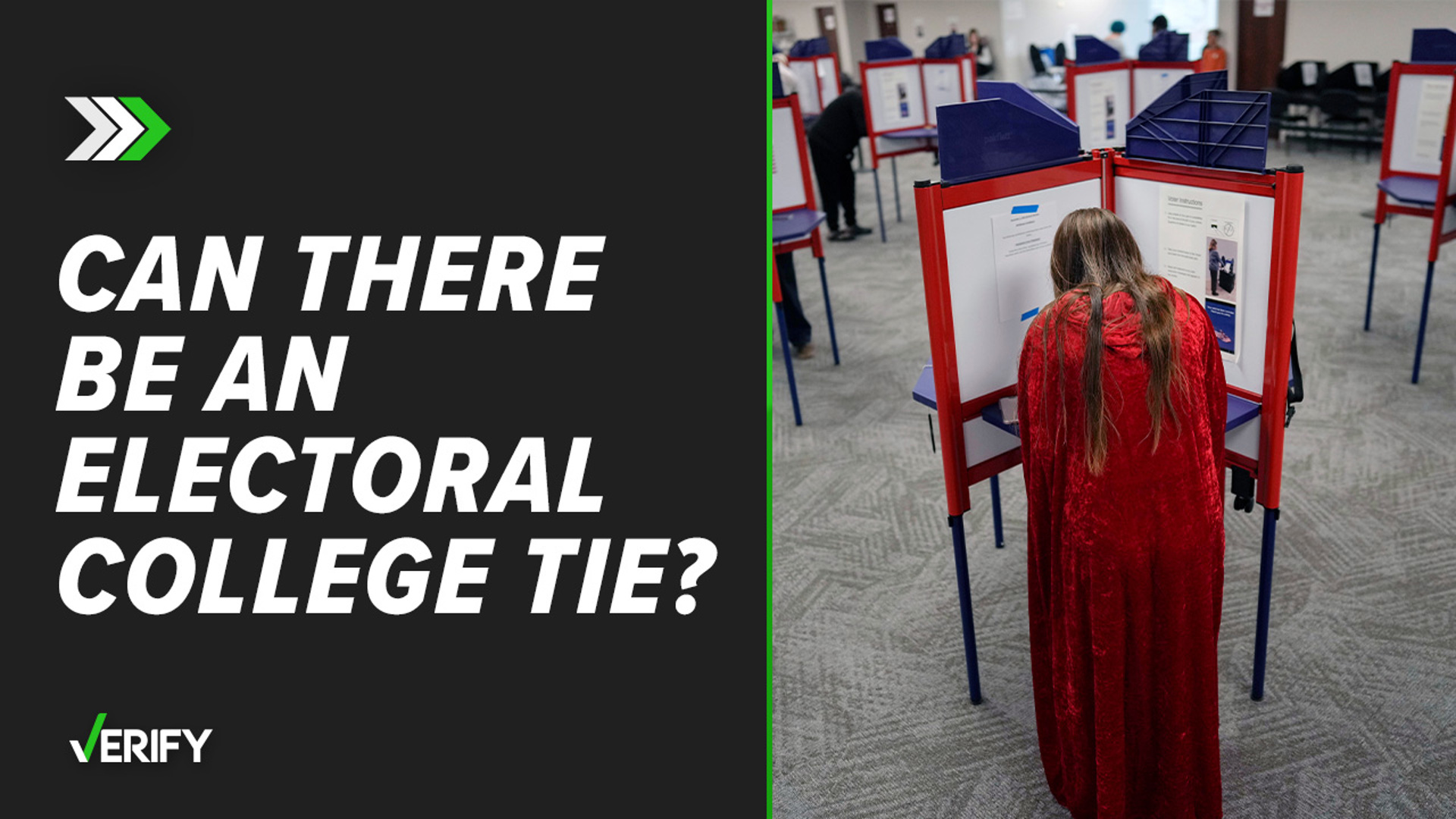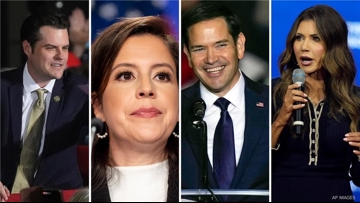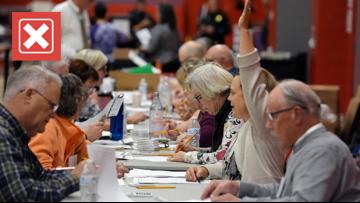According to polls, Republican Donald Trump and Democrat Kamala Harris are currently locked in a razor-tight race for the White House ahead of Election Day on Tuesday, Nov. 5.
To win the presidency, one of the candidates must receive the majority of Electoral College votes. But the extremely close race between Trump and Harris has VERIFY reader Jabbar and other people online wondering if it’s possible to have a tie in the Electoral College and what happens if there is one.
THE QUESTION
Is it possible to have a tie in the Electoral College?
THE SOURCES
- 12th Amendment to the U.S. Constitution
- National Constitution Center
- Congressional Research Service (CRS)
- USA.gov
- 270toWin, a nonpartisan political website that aggregates polls and election projections
- ABC News’ 538 project
THE ANSWER
Yes, it’s possible to have a tie in the Electoral College, but this scenario is unlikely.
WHAT WE FOUND
It’s possible, though unlikely, for the 2024 presidential election between Trump and Harris to end in an Electoral College tie.
The Electoral College decides who will be elected president and vice president based on how the states vote. Each state gets as many electors as it has members in Congress, and Washington, D.C. gets three, which adds up to 538 total. A presidential candidate needs at least 270 electoral votes to win the election.
Since there is currently an even number of votes in the Electoral College – 538 – it’s mathematically possible for both candidates to end up in a 269-269 tie.
In the rare event of a tie, the 12th Amendment to the Constitution specifies that Congress would decide the winner, according to the Congressional Research Service (CRS) and National Constitution Center.
The House of Representatives would elect the president from the three candidates who received the most electoral votes in what’s known as a "contingent election.” Each state delegation gets one vote and it takes 26 votes to win, the National Archives explains.
Though a tie in the Electoral College can happen, it probably won’t, according to experts.
270toWin, a nonpartisan political website that aggregates polls and election projections, says a tie is “unlikely” but “not out of the question.” ABC News’ 538 project says “there is a less than 1-in-100 chance of no Electoral College winner.”
There have only been two times in U.S. history when no presidential candidate won the majority of electoral votes: the 1800 presidential election when the House chose Thomas Jefferson, and the 1824 election when the House picked John Quincy Adams.












